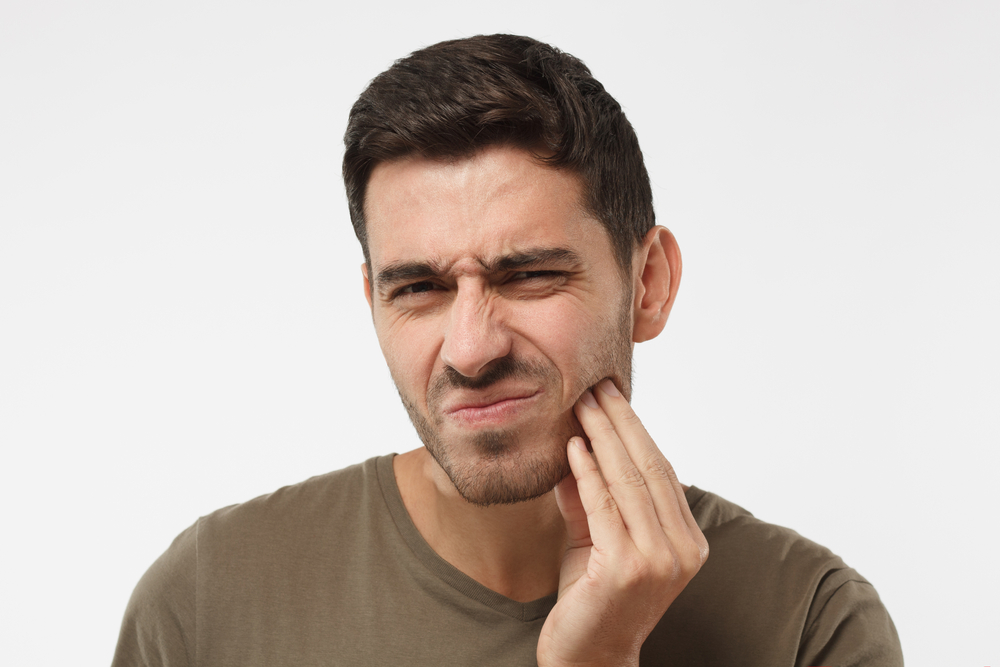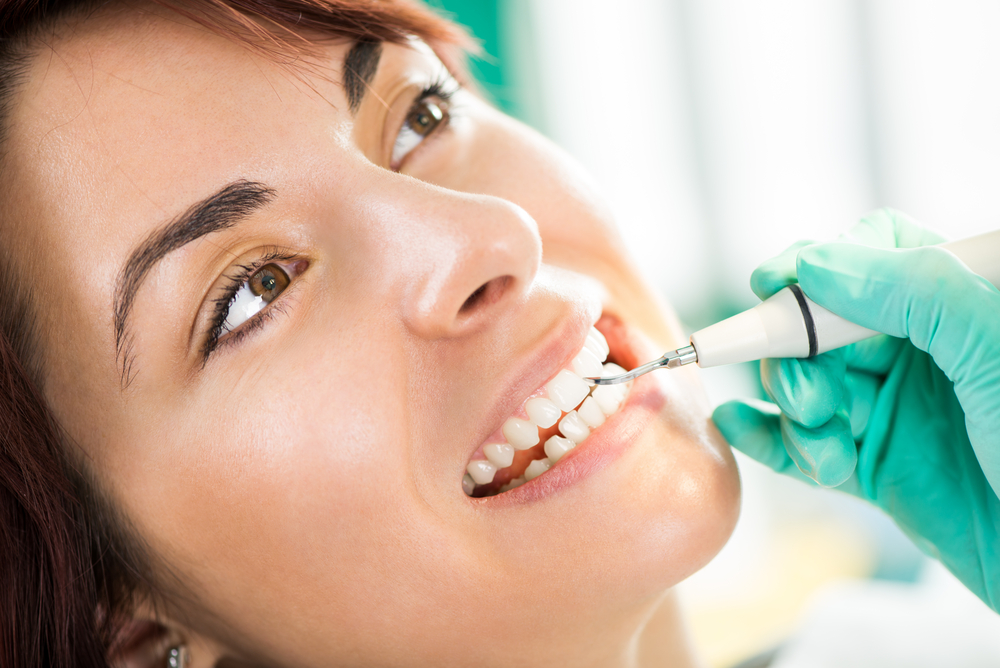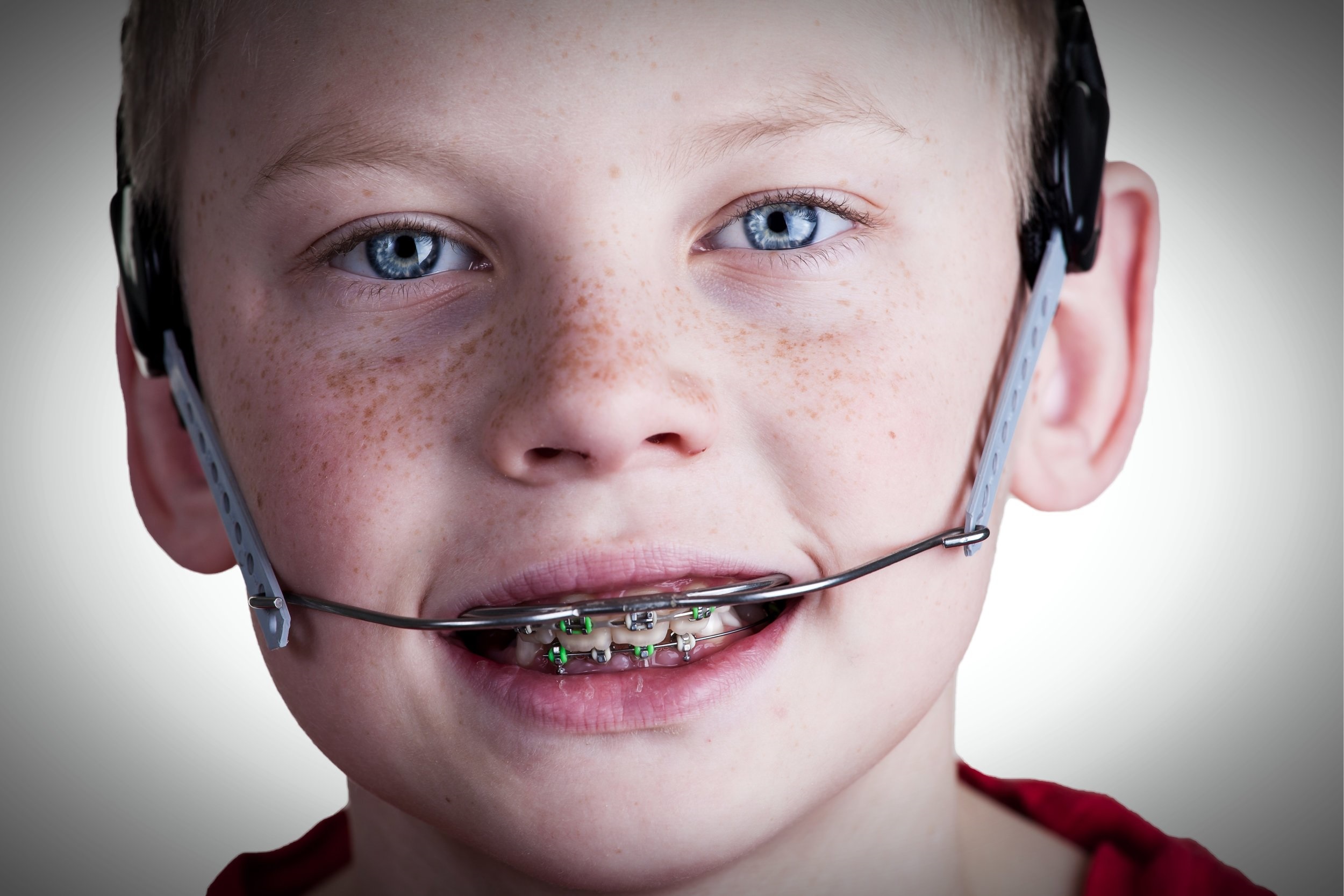- Cheek biting can be caused by misaligned teeth or behavioral factors.
- Chewing, biting, or constant pressure on the inside of the cheeks results in lesions or ulcers.
- A range of treatment options are available to address both the causes and symptoms.
What is cheek biting?
Cheek biting is the chronic act of clenching teeth down on the inner cheek. Often done while sleeping, this biting is more than just a bad habit. Cheek biting can be a sign of excessive stress or anxiety.
When done obsessively over a long period of time, chewing or biting cheeks can cause damage to the mouth leading to ulcers and mouth sores.
This repeated act may be a manifestation of anxiety known as a body-focused repetitive behavior and quitting may require more than just a strong will. As a sign of a greater life imbalance, reducing your stress load and managing anxiety are key to preventing cheek biting.
What types of cheek biting exist?
While some of the more worrisome cheek chewing is a result of stress or anxiety, there are a number of causes for cheek biting.
- Periodic accidental cheek biting is fairly common. This form of cheek biting occurs on occasion, often when eating or talking. This form is relatively harmless, potentially causing a small injury to the inner mouth at most.
- Regular accidental cheek biting is when biting similar to that of periodic accidental biting occurs more often than average. This could be a sign that your teeth are improperly aligned and that you may require braces. Speaking with your dentist or an orthodontist could help solve this issue.
- Sleep cheek biting might be caused by stress and anxiety, particularly if this biting continues during your waking hours. If you mainly bite your cheeks while you sleep, you dentist or orthodontist may be able to provide you with a mouthguard to prevent damage.
- Habitual cheek biting is similar to any other bad habit like nail biting. This biting is somewhat intentionally done but is separate from a body-focused repetitive behavior as it can be stopped relatively easily with conscious effort.
- Body-focused repetitive behavior can be the most difficult cheek biting to address. This form is difficult to control even with conscious effort. Altering this behavior will require a reduced stress load and may require speaking with a therapist.
What causes cheek biting
In some cases cheek biting can be classified as a body-focused repetitive behavior (BFRB), much like nail biting or hair pulling. When it isn’t caused by dental issues, it generally occurs as a symptom of any of the following psychological or behavioral patterns.
- Nervous habits that are difficult to control
Roughly 3% of the population is afflicted with BFRB. These various forms of repetitive behavior can cause significant physical and emotional distress. Sometimes, cheek biters begin repetitive biting because they notice a bump or uneven texture on the cheek lining. This generally exacerbates the roughness, making the lesion more prominent and causing further temptation to bite. Often, people are unaware they are even biting their cheeks.
- Excess stress
Repetitive chewing or biting of the cheek can develop as a response to high levels of stress, and may be done unconsciously.
“The most common cause is excessive activity of the jaw muscles, which creates a contact between the teeth and the soft tissue of the cheek,” says Dr. Wilcox. “This can be a nervous habit where people will bite their cheek as a subconscious outlet for stress during waking hours.”
- Jaw clenching
Cheek biting may also be linked to bruxism, an oral disorder characterized by the clenching or grinding of the teeth and jaw. This repetitive action can traumatize the soft cheek tissue. Bruxism can occur during both sleep and waking hours.
Cheek biting in children
Malocclusion or misaligned teeth represent one of the major causes of cheek biting. When the upper teeth are misaligned because of a crossbite, crowding, or crooked teeth, the cheek is not properly protected and can easily find its way between the upper and lower molars.
Developmental issues most commonly seen during childhood can sometimes cause cheek biting. Misaligned teeth often result from airway obstructions, breathing issues, and habits such as thumb sucking or tongue thrusting.
According to Dr. Mark Duncan of Aesthetic Dentistry in Georgetown, TX, teeth are naturally designed to be self-aligning. During childhood they erupt into neutral space, with their long, flat sides guiding them to form a U-shape. The tongue is also instrumental in pushing the sides of the teeth outwards and into the right position.
What are the consequences of cheek biting?
Generally, cheek biting causes damage to the mouth’s lining by creating painful inflammation, swelling, tears, and sores. Some cheek bites manifest as minor lesions that heal relatively quickly; others can result in severe lesions that may require stitches.
- Traumatic sores and ulcers
Many cheek bites result in a sore similar to a canker sore or ulcer. They can be extremely painful and become infected.
- Hyperkeratosis
The body attempts to defend itself from chronic trauma by creating a protective coating of keratin within the mouth. The keratin forms a hard patch, as the body produces extra cells to protect the soft tissue of the cheek.
Hyperkeratosis is usually found where the cheek tissue is in contact with the teeth, and may appear as a gray-white line or lesion. Since the keratin is hard and protrudes slightly from the inner cheek, this increases the temptation to bite or chew, further increasing irritation and damage. Repeat trauma to the cheek tissue causes inflammation, tenderness, and swelling.
- Oral cancer
Chronic irritation of the inner cheek is also linked to oral cancer. Oral sores caused by trauma may result in excessive cell growth, leading to cancer.
What are the treatments for cheek biting?
Your first reflex should be to see your dentist for a thorough check-up. As Dr. Duncan explains, “Typically, if the dentist does a careful enough health history and examination, there will be a multitude of other things along with cheek biting that could be uncovered.”
Dr. Duncan advises a comprehensive health check that takes into consideration the cause of the cheek biting, and other related symptoms such as sleep apnea or headaches. A thorough and accurate diagnosis will help determine the most appropriate course of treatment.
Depending on the cause and severity of the cheek biting, possible treatments include:
- Braces or dental work
Misalignment of the teeth can be corrected with orthodontic treatment if significant bite issues exist. A minor discrepancy can sometimes be corrected by reshaping the teeth responsible for the biting. If new dental restorations have created the problem, they must be reshaped.
- Dental guard
Mouth guards protect the teeth during sleep from unconscious biting or tissue damage caused by jaw and teeth grinding. A daytime dental guard can also be worn if necessary.
- Weight loss
Cheeks that have become larger due to weight gain will respond to weight loss.
- Prescription mouthwash
Prescription mouthwash can help keep the mouth clean and minimize bacteria if cheek biting has caused ulcers or lesions.
- Laser treatments
Laser treatments can efficiently cauterize any hardened scar tissue, leaving a smooth surface. This can help reduce the desire to bite and allow the cheek tissue to heal.
- Relaxation and mindfulness
For habitual anxious cheek biters, identifying the source of stress and modifying responses to it is essential to treating the disorder and promoting better long-term health in general.









